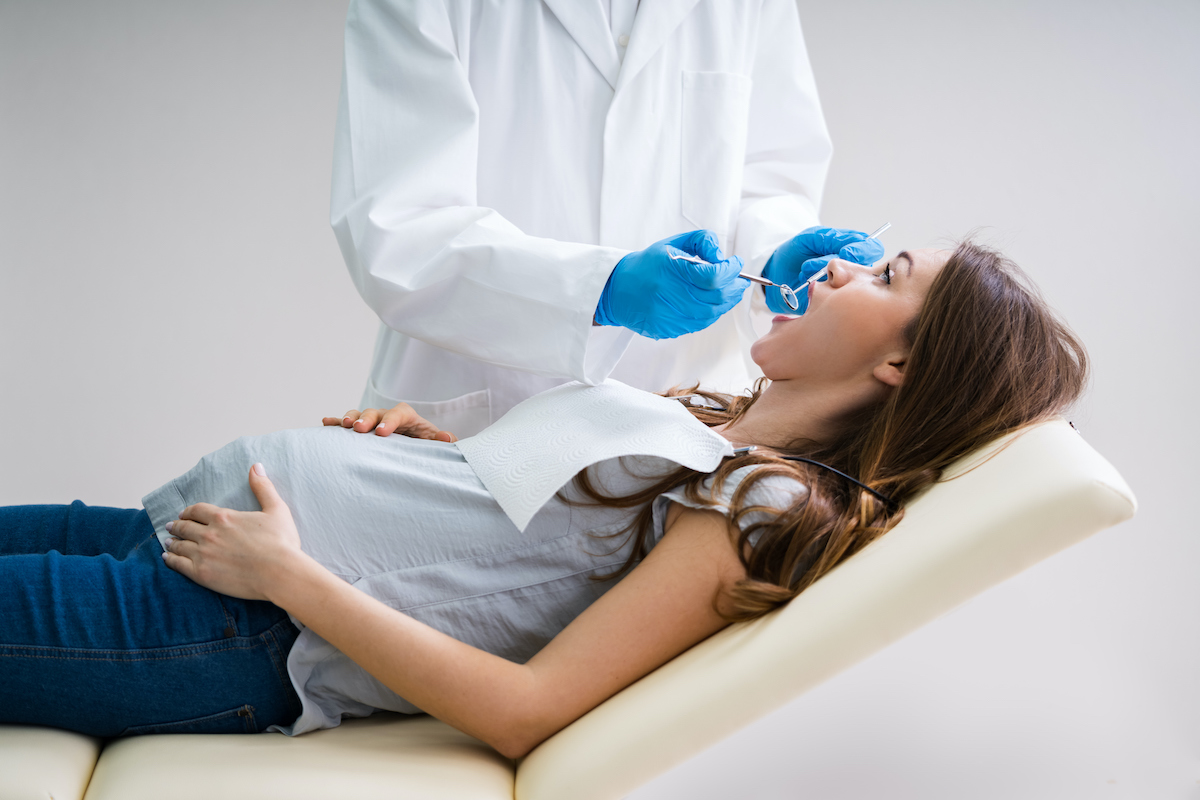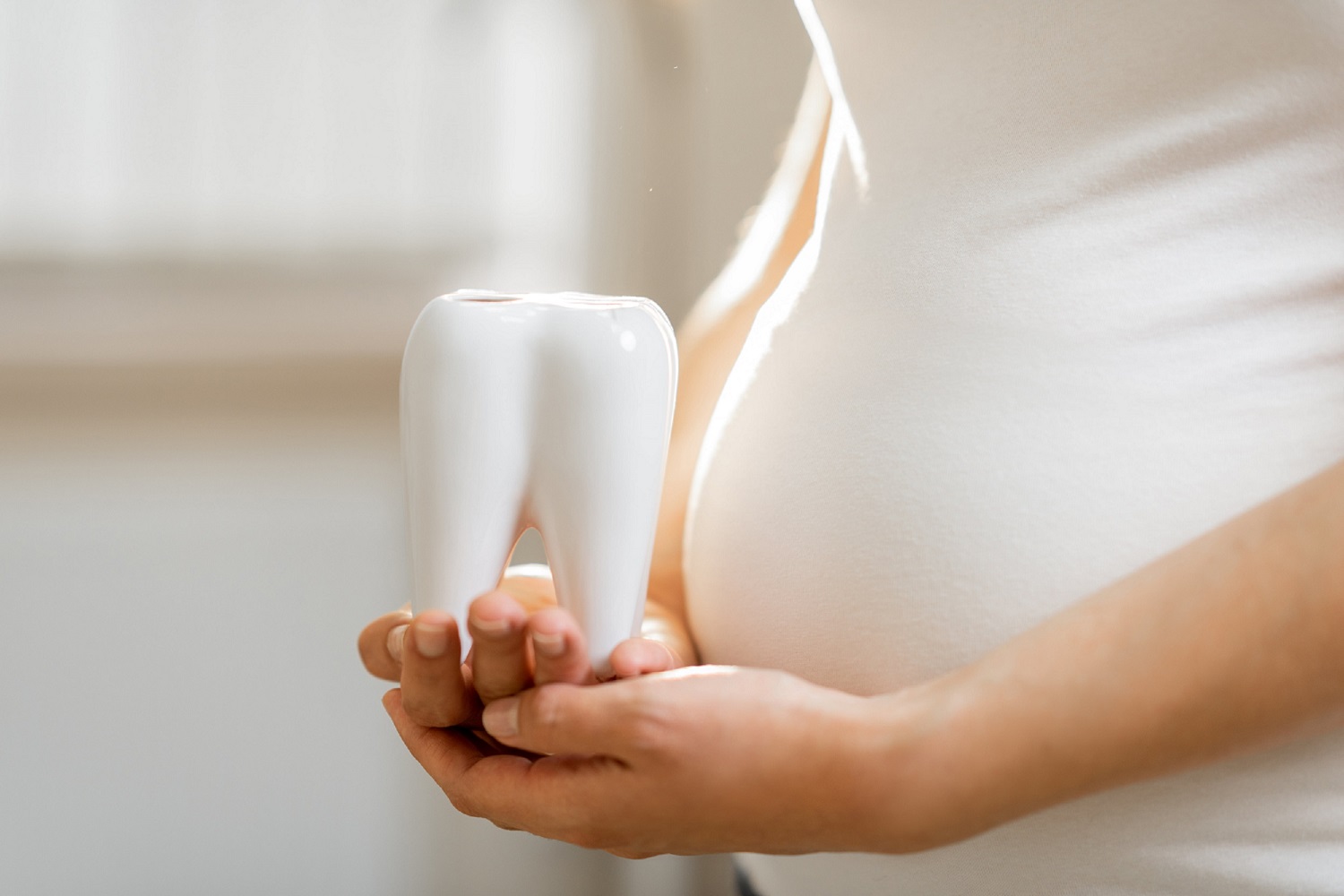
Oral Health Before Pregnancy
The importance of dental health on pregnancy and even fertility cannot be overstated. There is a direct correlation between oral health and pregnancy, as well as fertility in both males and females. Oral health concerned issues cannot be neglected by both partners when they are planning to go on a family way.
Fertility, The direct association between dental hygiene and fertility is just another way teeth & gum health is tied to overall well-being. Poor oral health can reduce their sperm count in men and the sperm's ability to swim. In women, bacteria triples the risk of infertility before pregnancy.
Cavities, tooth infections, and gum disease all involve high levels of bacterial growth in the mouth. Elevated levels of bacteria in the mouth may lead to increased levels of bacteria in other areas of the body.
In men, low sperm count, poor sperm motility (that's how the sperm swim), abnormal sperm morphology (that's the shape of sperm), and evidence of bacterial infection in the semen are associated with various dental and oral health problems.
In women, periodontal pathogens can negatively affect conception by the metabolic waste products produced by the bacteria, which can circulate through the body and is the cause of prolonged infertility.
In cases of these dental diseases, the infection could be treated to increase their chances of conception.
Make an appointment with Dr Savina Gupta at My Dental care for your oral health before pregnancy.
During Pregnancy
Oral health is considered an important part of prenatal care, given that poor oral health during pregnancy can lead to poor health outcomes for the mother and baby. Pregnant women are susceptible to a wide range of oral health conditions that could harm their health and the future of their baby. During pregnancy, women may be more prone to-
- Gum diseases such as-
- Gingivitis and periodontitis
- Gingival tissue ulcerations
- Pregnancy granuloma
- Pregnancy tumours (epulis gravidarum)
- Teeth problems such as-
- Loose teeth
- Cavities
- Dental erosions
- And generally- mouth dryness due to decreased salivation

The changing hormone levels in pregnancy directly affect gum problems, and indirectly, tooth decay. And when a pregnant woman goes through such a dental problem, the germs reach the bloodstream and then travel to the womb and are able to cross the placenta to affect the foetus. This foetal toxicity can result in-
- Premature delivery
- Low birth weight baby
- Pre-eclampsia
- Chances of miscarriage
- Stillbirth
If you have any issues or have any worries about your oral health while pregnant, schedule an appointment with Dr. Savina Gupta at My Dental Care.
Periodontal Disease and Pregnancy

Gum disease-
Many tissues undergo certain changes because the placenta produces higher levels of oestrogen and progesterone during pregnancy, which increases vascular permeability. Another cause of this phenomenon is the low levels of vitamin C. Giving vitamins C, Ca, P, and Fl is considered beneficial.
In this period, excessive sensitivity to irritations occurs in the gingiva. Nearly 60 to 75% of pregnant women have gingivitis (an early stage of periodontal disease), which occurs when the gums become red and swollen from inflammation. Infected gums and pregnancy is a threatening combination. It highly affects the health of your baby and his/her life could be at risk if the little one is born prematurely. The baby's body temperature could fluctuate or else breathing issues and lung disease can come into the picture. Gum disease can cause bleeding. Bleeding of the gums can affect your immune system, which will make you weak. And poor immunity power can lead to stillbirth.
In pregnancy, gingivitis or epulis gravidarum, commonly known as pregnancy tumours, can be seen very often. When the growth of the gingiva is localized to one area, pregnancy tumours may be seen. They originate from pyogenic granuloma and disappear after 1-2 months. Surgical removal is recommended if they do not vanish spontaneously.
Dental Cavities during Pregnancy
Teeth cavities-
It is generally known that tooth decay increases during pregnancy. 1 in 4 women of childbearing age have untreated cavities. This phenomenon can be explained by dentists as follows: nausea and vomiting are seen in 70% of pregnancies. Vomiting can affect oral hygiene negatively or may cause erosion on the tooth enamel layer. Moreover, pregnant women may also be at risk for cavities due to behavioural changes, such as eating habits. Also, saliva flow decreases in pregnancy, which leads to the formation of cavities during this period. And most importantly, mothers can neglect their own oral and dental health care while they are dealing with the health of the baby, which in turn causes a deterioration of oral health.
Women who have a lot of cavity-causing bacteria during pregnancy and after delivery could transmit these bacteria from their mouth to the mouth of their baby. Early contact with these bacteria and other sugars, such as from frequent snacking or taking a bottle to bed, can lead to early childhood cavities and the need for extensive dental care at a young age. Children of mothers with high levels of untreated cavities or tooth loss are more than 3 times more likely to have cavities as a child. Children with poor oral health status are nearly 3 times more likely to miss school because of dental pain.
Dental Care while pregnant
Management-
For these reasons, it is necessary to pay more attention to dental health care during conception, pregnancy, breastfeeding and menopausal periods. Effective dental care should be obtained by using toothbrushes and dental floss at least twice a day. Both parents should undergo regular dental check-ups and treatment whenever required.
There are many myths about the safety of dental care during pregnancy. As a result, pregnant women receive less dental care than when not pregnant. The combination of personal and professional treatment during pregnancy is very important. Daily oral and dental care at home should be continued non-stop. The ideal number of dental checks in the first trimester is two, and one examination in the second and third trimesters. The second trimester is the most appropriate period for making any emergency treatments. In emergency cases such as tooth and gingival inflammation, existing infections can affect the baby's health much more adversely than the adverse effects of dental treatment. Recent publications indicated that many dental treatments could be performed safely during pregnancy, such as extractions, local anaesthetics, root canal treatment, scaling, and root planning.
Thus parents who are planning to have a healthy baby must consider total dental care in their ante-natal management.
Visit My Dental Care and talk to Jaipur's best dentist and consult about your dental care before you get pregnant.
